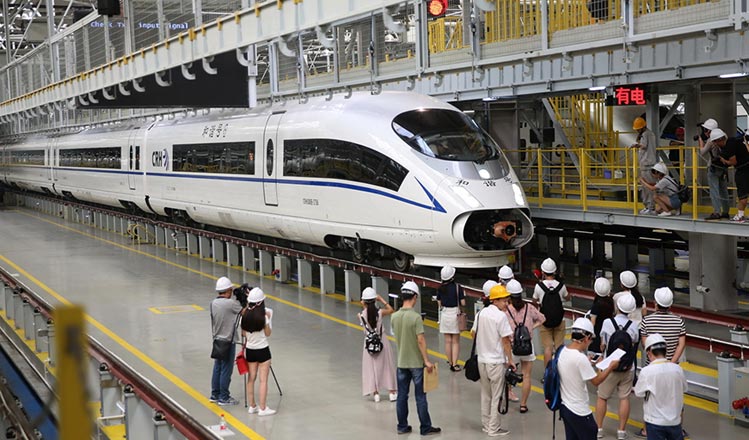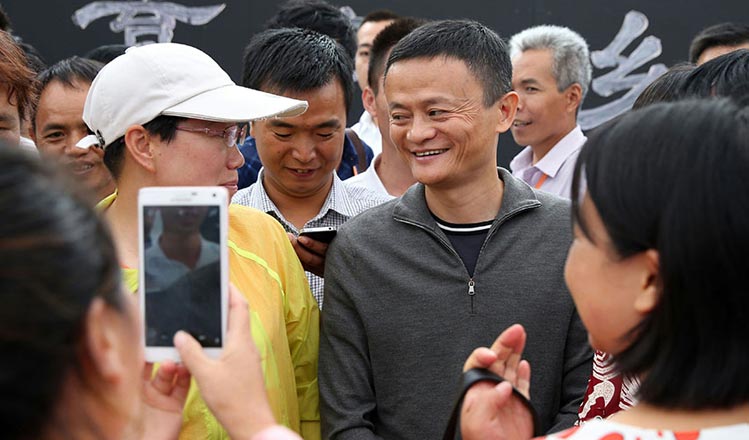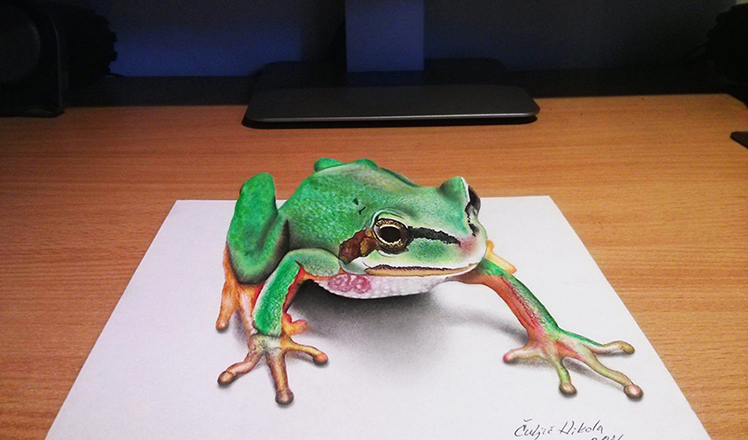Chinese companies in US outperform
Updated: 2016-08-04 11:31
By Chen Weihua In Chicago(China Daily USA)
|
||||||||
Chinese companies in the United States have become increasingly bullish, despite an economic slowdown back home in China.
|
Chicago Mayor Rahm Emanuel (seated right) and Wanxiang America President Pin Ni sign an agreement on Wednesday for Wanxiang to fi nance Chicago high school students to study Mandarin. Chinese Consul General in Chicago Hong Lei (back row, second from right) and Carola McGiff ert (back row, center), CEO of US-China Strong Foundation, also attended. The signing ceremony was held at the Art Institute of Chicago before the opening of the Chinese General Chamber of Commerce ChicagoChapter annual gala. Chen Weihua / China Daily |
The latest 2016 annual business survey by the China General Chamber of Commerce (USA) shows that 51 percent of the Chinese-funded businesses in the US had increased their revenue in 2015 over 2014, while 27 percent saw it remain the same. About 22 percent saw revenue decline.
Meanwhile, 42 percent of the companies increased their profits in 2015 over 2014, while 34 percent remained the same. And 22 percent experienced a drop.
Overall, 41 percent of the Chinese-funded companies said their profit margin is higher than their companies' global average, while 32 percent said they are the same as the global average.
"This shows the US is a great place to invest," said Pin Ni, chairman of the CGCC Chicago chapter and president of Wanxiang America, based in Elgin, about 40 miles northwest of downtown Chicago.
He also said that Chinese investors have increasingly come to the Midwest. CGCC data show that Chinese FDI in the Midwest was $12.8 billion in from 2000-2015.
The survey also shows that the majority, or 53 percent, of the Chinese investors are private, in contrast to the general public perception that state-owned enterprises are the dominant investors.
It also shows that 56 percent of the companies have operated in the US for fewer than five years.
"So there are lot of lessons to be learned and a lot of mistakes to be made," Ni told a packed auditorium of some 400 government officials and business leaders on Wednesday at the chapter's annual gala.
He described it as a learning curve, and not only for the language and cultural differences. "There are many other things (where) the US and China are very different," he said.
"Let's be patient. As long as we give the child room to grow, eventually they will become very healthy adults," Ni said.
US President Barack Obama sent a congratulatory message to the annual gala.
"The United States and China are the world's two largest economies, and together, we must find cooperative measures that help promote growth around the globe," Obama said. "Events like this provide a platform for business leaders to unite in a spirit of collaboration to discuss key issues and exchange ideas."
Obama said such efforts not only open doors of economic opportunity for the people of both countries, but also remind them that a constructive relationship between the US and China is important to the world.
Mayor Rahm Emanuel said Chinese FDI is positive for Chicago.
Hong Lei, the new Chinese consul general in Chicago, called on Chinese companies to make more contributions to the Midwest and shoulder more social responsibility.
The CGCC survey shows that Chinese-invested companies hired more American employees in 2015 than in 2014; most of them are reinvesting their profits for expansion in the US.
Ni noted that this has been a sensitive subject, but Chinese companies are coming to the US to create jobs.
However, 58 percent of the companies say they do feel bias against foreign companies in US government policy implementation, reflected in the various investigations from tax compliance to intellectual property rights to anti-corruption.
Only 34 percent said the Bilateral Investment Treaty being discussed between China and the US will help them greatly or somewhat, while 23 percent said there will be no impact; 43 percent said they didn't know.
The BIT, pushed by both President Xi Jinping and Obama in their summit meetings in the past two years, has been largely stalled lately due to the US presidential election season and the US government priority to press Congress to ratify the Trans-Pacific Partnership (TPP) during the lame-duck session late this year.
A report by the New York-based Rhodium Group last month shows that Chinese firms poured FDI of $18.4 billion into the US in the first half of 2016. That is almost three times the amount recorded for the first half of 2015 ($6.4 billion), and more than total Chinese FDI in the US for all of 2015 ($15.3 billion).
An updated report released by the Rhodium Group and the National Committee on US-China Relations in April shows that the number of Chinese-affiliated companies in the US exceeded 1,900 by the end of 2015, extending across more than 80 percent of US congressional districts.
As greenfield FDI picked up and many existing companies expanded local employment, the number of Americans employed by Chinese-affiliated companies rose by another 12 percent, to 90,000, according to the report.
The CGCC has grown from a small organization with fewer than 100 members a decade ago to one with six regional chapters, six industry committees and a total of more than 1,000 corporate members, 40 of which are on the 2016 Fortune 500 list, said Xu Chen, CGCC chairman.
Sandy Chu, principal and national leader of the China Business Group of accounting firm Grant Thornton LLP, described the Chinese investment deals her company has worked on as interesting and rewarding.
The Chinese investors have a wide range of interests, from real estate and textiles, to automotive, aerospace and insurance, and more recently, healthcare, she said, citing hospital purchases and acquisitions of medical equipment manufacturers and surgical centers.
Chu said she found it fascinating that some Chinese investors that acquire entire US companies have not sent their own people from China to be in charge, but have kept all senior management and left them alone.
"It surprised me when I first saw that," Chu said.
The following companies were honored at the gala at the Art Institute of Chicago: The SAIC USA, Wanda Group Chicago and Wanxiang America were honored as "Most Influential Companies". Nanshan Aluminum Co won the "Fast Growing Company" award, and Hainan Airlines Chicago was named the "Best Investor".
chenweihua@chinadailyusa.com
- Fire guts Emirates jet after hard landing; 1 firefighter dies
- Egypt's Nobel-laureate scientist dies of illness in US
- THAAD muscle flexing unmasks anxiety over declining hegemony
- British police say mental health a significant factor in London knife attack
- Paragliding fans fly over Rigi mountain in Switzerland
- DPRK fires 1 ballistic missile into east waters

 World's fastest bullet train to start operating next month
World's fastest bullet train to start operating next month
 Jack Ma visits rural school, meets teachers
Jack Ma visits rural school, meets teachers
 Top 8 global market leaders from China
Top 8 global market leaders from China
 After Typhoon Nida, torrential rain hits S. China
After Typhoon Nida, torrential rain hits S. China
 Serbian artist creates incredible 3-D art
Serbian artist creates incredible 3-D art
 Glimpse into the work and life of G20 guards
Glimpse into the work and life of G20 guards
 Shopping and throwing Frisbee in virtual reality
Shopping and throwing Frisbee in virtual reality
 Take a closer look at the life in Rio Olympic Village
Take a closer look at the life in Rio Olympic Village
Most Viewed
Editor's Picks

|

|

|

|

|

|
Today's Top News
US launches airstrikes against IS targets in Libya's Sirte
Ministry slams US-Korean THAAD deployment
Two police officers shot at protest in Dallas
Abe's blame game reveals his policies failing to get results
Ending wildlife trafficking must be policy priority in Asia
Effects of supply-side reform take time to be seen
Chinese State Councilor Yang Jiechi to meet Kerry
Chinese stocks surge on back of MSCI rumors
US Weekly

|

|









